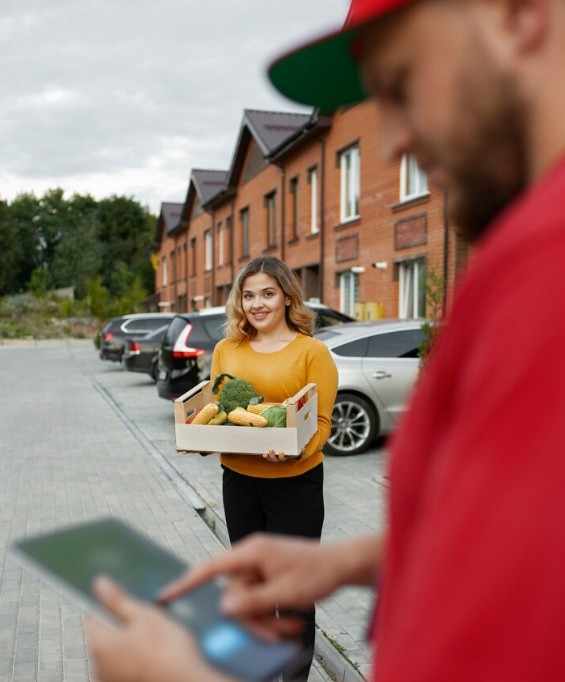
Banana leaves have held a place of pride in traditional cooking across many cultures, especially in South and Southeast Asia. Their versatility, eco-friendliness, and cultural significance make them an integral part of many culinary traditions. In Melbourne, where multiculturalism flourishes and authentic ingredients are in demand, banana leaves are becoming increasingly popular for both domestic use and cultural celebrations.
This blog delves into the uses, sourcing, and cultural importance of banana leaves in Melbourne, offering readers practical insights and answers to common questions—without any promotional bias.
The Cultural Relevance of Banana Leaves
Banana leaves are more than just large green foliage; they are deeply symbolic in many communities. In Indian cuisine, for example, serving food on a banana leaf is seen as auspicious and is believed to enhance the flavor of meals. These leaves are commonly used in weddings, festivals, religious rituals, and temple offerings.
In Tamil, Malayali, and Sri Lankan households, the leaf represents purity and is often used during festive feasts like Onam Sadhya or Pongal. Filipino, Thai, and Indonesian cuisines also employ banana leaves for grilling, steaming, and wrapping food, adding a unique flavor and aroma.
Culinary Applications: More Than Just a Plate
In the kitchens of Melbourne’s diverse residents, banana leaves are prized for their multiple uses:
Cooking Wrap: Ideal for grilling or steaming, as they help lock in moisture and infuse the food with a subtle, earthy aroma.
Food Presentation: Enhances visual appeal and elevates the dining experience, especially at cultural gatherings.
Eco-friendly Substitute: A sustainable alternative to plastic or aluminum foils, supporting zero-waste lifestyles.
These leaves are non-toxic, compostable, and widely accepted in eco-conscious communities looking to make environmentally responsible choices.
Where to Find Banana Leaves in Melbourne
While banana trees are not native to southern Australia’s cooler climate, demand for banana leaves remains strong in the city’s multicultural suburbs. Various Indian Supermart outlets and Asian grocery stores stock frozen or freshly cut banana leaves sourced from Queensland or imported.
Neighborhoods like Dandenong, Clayton, and Footscray, known for their vibrant ethnic markets, are some of the best places to find banana leaves in Melbourne. These stores often cater to diverse communities and maintain a steady supply for regular and festive usage.
Look for stores that specialize in Indian, Sri Lankan, Filipino, or Thai goods. Many of these grocers have expanded their inventories due to the rising demand for authentic culinary ingredients.
Tips for Buying and Storing Banana Leaves
When purchasing banana leaves in Melbourne, consider the following to ensure quality and usability:
Fresh vs. Frozen: Fresh leaves are ideal but may not always be available. Frozen options, while slightly brittle, are still suitable for most culinary purposes.
Inspect for Damage: Check for tears, dark spots, or mildew, which may indicate poor storage.
Storage Advice: Store fresh banana leaves in the refrigerator, wrapped in a damp cloth or sealed bag. For frozen leaves, thaw slowly at room temperature before use.
These tips help maintain the texture and aroma that make banana leaves such a unique addition to traditional recipes.
Role of Indian Supermart in Cultural Integration
One of the key contributors to the availability of banana leaves in Melbourne is the thriving network of Indian Supermart chains and similar ethnic grocers. These stores go beyond mere commerce—they support cultural continuity for immigrant communities by offering hard-to-find traditional items.
The presence of such supermarkets allows new and existing immigrants to recreate the flavors and customs of their home countries, right here in Melbourne. The accessibility of culturally specific items like banana leaves helps bridge generational and geographical gaps.
Frequently Asked Questions (FAQ)
Are banana leaves safe to cook with?
Yes, banana leaves are non-toxic and safe for use in grilling, steaming, and wrapping food. They are commonly used across many cultures for precisely these purposes.
Can I grow banana leaves in Melbourne?
Due to Melbourne’s cooler climate, banana plants typically struggle outdoors. However, with a greenhouse or controlled indoor conditions, some enthusiasts have managed to grow them in smaller quantities.
Do Indian supermarkets sell fresh or frozen banana leaves?
Most Indian Supermart outlets in Melbourne offer both options, though availability may vary based on the season and demand. It's best to call ahead or check online inventories.
How do I use frozen banana leaves?
Thaw the leaves slowly at room temperature and rinse them with warm water to make them pliable. Avoid rapid heating, which can cause the leaves to crack.
Can banana leaves be reused?
In most cases, banana leaves are used once due to hygiene and their delicate nature after heating. However, for decorative purposes, cleaned and dried leaves can be reused.

Conclusion
Banana leaves are a timeless ingredient that carry cultural, culinary, and ecological significance. In a city as diverse and vibrant as Melbourne, their availability through local Indian Supermart outlets and ethnic grocers ensures that communities continue to celebrate their heritage authentically.
Whether you're preparing a festive meal, wrapping traditional delicacies, or simply seeking an eco-friendly alternative to conventional cookware, banana leaves offer a unique solution—one steeped in tradition and sustainability.





Write a comment ...